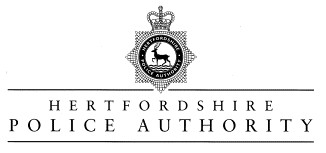

Things
to Look for when Buying a Car
If you are about to buy, or are thinking of buying a new car, there are some practical things that you need to look out for when buying a second hand car, to make sure that you donít buy one that is stolen or a likely target for thieves.
Always
do your research first
∑
Decide what make and model you are interested in.
∑
Find out where the vehicleís Identification
Numbers should be. You can do this by contacting the manufacturer or a local
dealer who sells the vehicle. The numbers are in different places dependent upon
the make and model of the vehicle. Most are under the bonnet in the engine
compartment, or on the driverís door pillar.
∑
Consider taking an independent qualified examiner
with you.
∑
Always check the vehicle history in relation to
outstanding finance, accidents etc. Some vehicles have been purchased under
fraudulent finance agreements and are immediately sold on. Even though all the
necessary documentation is present, no payments have been made and the loan is
still outstanding, so the vehicle remains the property of the finance company.
You can do these checks by contacting the HPI Group
Tips
when buying from a private advertisement
∑
Ensure that you know who the seller is.
∑
Beware of mobile telephone numbers (they may not be
traceable).
∑
Beware of adverts that ask you to call between
specific times because it could be a telephone box. Always try calling outside
these specific times to ensure the seller is genuine, as stolen vehicles are
often sold by using this method.
∑
Check that the seller holds the vehicle
registration document and MOT certificate. If not, why not?
∑
Always arrange to view the car in the daylight at
the sellerís home - before you buy always satisfy yourself that it is their
home by checking the vehicleís documentation with the sellerís address.
∑
Never allow them to bring the vehicle to your home
or meet you somewhere else.
Check
the person selling the vehicle is genuine
The
following checks may help you to make sure:
∑
Check that the seller is familiar with the vehicle
and its controls.
∑
Ask the seller how much they are paying to insure
the vehicle. Ask to see their current certificate of insurance.
∑
Check that the seller is the registered keeper. If
not, why not?
∑
Hold the registration document up to the light -
all genuine certificates have a watermark. Forgeries normally do not.
Check
the registration plates
∑
Do they appear newer than the car?
∑
Are there too many screw holes?
∑
Do the registration plates appear to have been
taken off at any time? If yes, ask why.
∑
Most registration plates now display either a
dealerís name, the name of the company who made the plates and/or a postcode.
If not, ask why not?
Check
the windows
∑
Look for dealer stickers displayed on the windows.
If there arenít any, ask why, because dealers like free advertisements.
∑
Check carefully underneath any stickers - were they
fitted to conceal etching?
∑
Are the windows etched with the correct
registration or part of the Vehicle Identification Number?
∑
Have any areas of glass which may have been etched,
been scratched off? Check all glass including headlights, tail lights, and
sunroofs.
∑
Have any of the windows been broken and replaced?
If so, find out why.
Check
the Vehicle Identification Numbers
LOOK
for
the VIN (Vehicle Identification Number) plate:
∑
Does it match the registration document?
∑
Does it appear to have been interfered with?
∑
Have the rivets been disturbed?
∑
Has the VIN plate been removed? If so, ask why.
FIND
the
stamped-in Vehicle Identification Number. These are normally found in the
footwell at the side of the driverís seat, or under the bonnet.
∑
Check the surrounding areas for signs of any
alteration.
∑
The 17 digits should be evenly spaced and levelly
stamped and should match the registration document.
CHECK
the
engine number.
∑
Does it match the registration document? Has it
been interfered with or altered? Has the engine been changed?
Check
the locks and security systems
∑
Does the car have a working security alarm system?
∑
Are all the locks the same? Thieves often change
locks they have damaged.
∑
Check for damage on door locks or surrounding
areas. This can be a sign of a forced entry.
∑
Check the locking petrol cap - has it been forced
and replaced?
Checks
to make when buying an import
∑
If you buy a vehicle, which is an import, ensure
that the tax duty has been paid by contacting the DVLA on 0870 240 0010.
∑
If it hasnít you may be liable to pay this at a
later date.
What
happens if I buy a stolen vehicle?
If you
buy a vehicle, which is later found to be stolen, it may cause you problems and
you will have no right in law to ownership of that vehicle. You will lose both the car and the money
you paid for it.
What
happens if I buy a vehicle with outstanding finance on it?
If you
buy a vehicle that has an outstanding finance agreement, you may have no right
in law to ownership of that vehicle. You
may lose both the car and the money you paid for it.
Always
check the status of a second hand car with HPI Group Ltd on 01722 422422